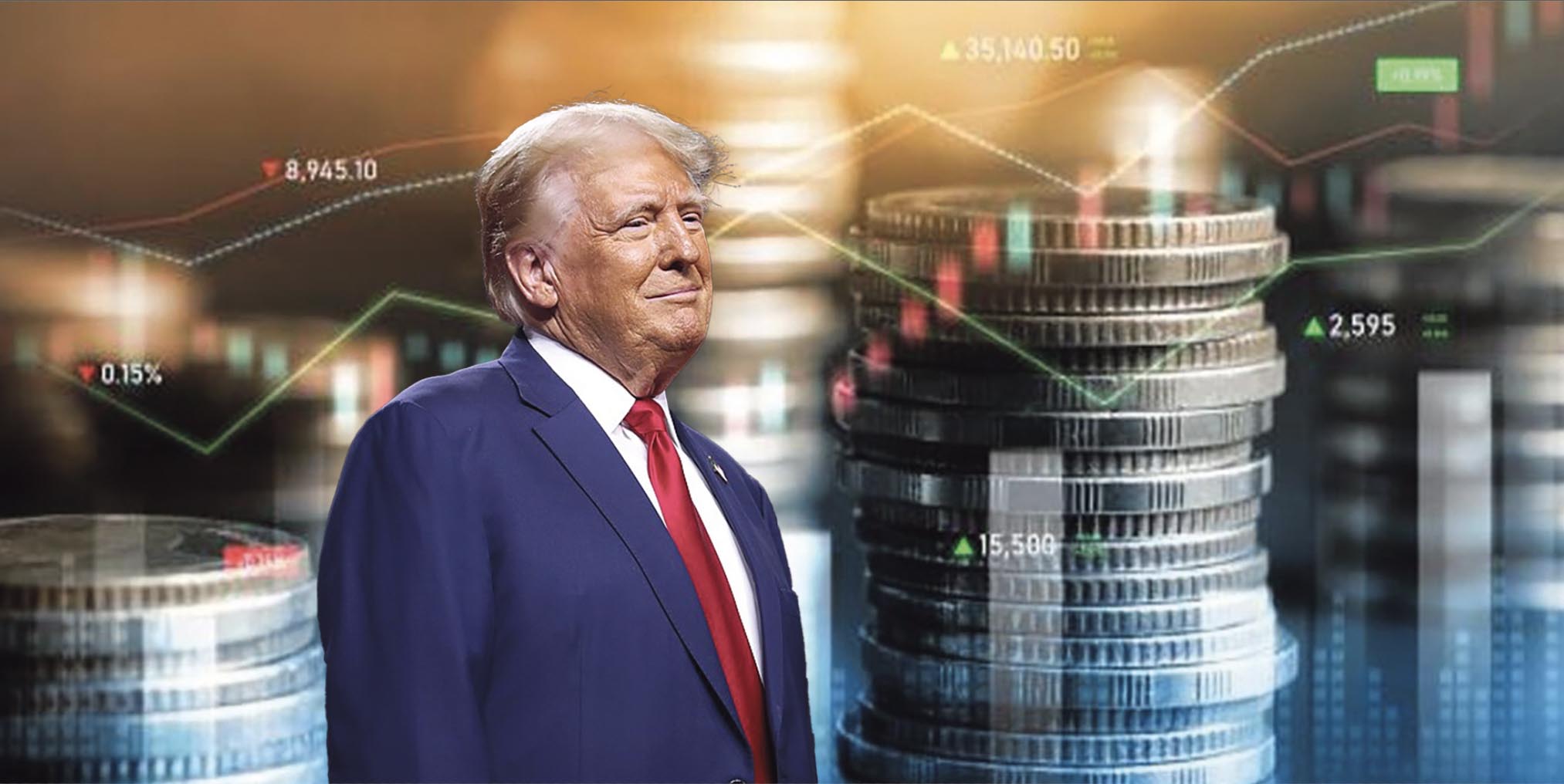Unlike when he first ascended to the White House in 2017, the world now knows what Donald Trump is capable of and better understands his approach to managing the US economy and trade pacts.
His approach was clear: it was about “putting America first”, protecting the US economy by imposing trade tariffs, deregulating key sectors such as energy and finance and implementing insular trade policies.
The same, if not more, is expected from Trump when he returns to power in early 2025 as the 47th president of the US. With a Republican majority in the Senate and potentially the House, Trump is likely to have a stronger platform and mandate than he did last time, which should embolden him.
While South Africa is a small and open economy in the emerging market context, Trump’s second-term presidency matters in many ways for the country and its fortunes.
The US is a key trading partner of South Africa, with top exports to the former including platinum, gold, coal and cars. Policy decisions by the Trump administration, such as protectionist tariff hikes and cuts to immigration (complicating the labour market), could drive up inflation and lead to a stronger dollar, limiting prospects for deeper interest rate cuts by the Federal Reserve and, eventually, the South African Reserve Bank.
“We are entering a new era of uncertainty,” said Bianca Botes, the global director of Citadel.
“Trump’s emphasis on protecting American industries and reducing trade deficits could mean tighter trade barriers, ushering in a new era of America protectionism that is likely to cause major disruptions to current global trade dynamics.
“Should he resume tariffs or restrict imports broadly, it could slow global trade, diminishing demand for South Africa’s exports and weakening the rand due to reduced foreign exchange inflows. Trump’s protectionism may create ripple effects that will weaken demand for commodities, a major export for South Africa,” Botes said.
Emerging markets under fire
Other centrepieces of Trump’s economic policies are simple: tax cuts for the rich, and tariffs to “protect” the jobs of his white, blue-collar political base.
The first will help drive up America’s debt levels, while the second will fan the flames of inflation. Higher US interest rates will be needed to contain inflation, which in turn will boost the US dollar – bad news for the rand and other African currencies.
“Another Trump presidency means that African nations will have to navigate tighter monetary policy … A stronger US dollar due to higher US yields will also increase fiscal and external balance pressures,” Jacques Nel, the head of Africa Macro at Oxford Economics Africa, said in a note.
The chaos, uncertainty and geopolitical tensions of a second Trump term will certainly cast a shadow over emerging markets as risk aversion among investors ratchets up. The initial slide of emerging market currencies, including the rand, after Trump’s win was largely a reflection of such jitters.
A wall of US tariffs will also have significant consequences for the Chinese economy, which is the biggest market for African commodities.
Trump’s pledge to open the floodgates for oil drilling in the US could contain oil prices but, as Nel notes, that will be a “mixed bag” for the continent, as several African countries are heavily reliant on the fossil fuel.
Uncertainty around Agoa and Pepfar
A Trump presidency also casts into doubt the continuation of many US aid and commercial initiatives in Africa.
An issue that remains of concern is the long-standing African Growth and Opportunity Act (Agoa), which allows South Africa and other African countries duty-free access to the US for certain exports. Agoa, which has been renewed twice since it was launched in 2000, is due to expire in September 2025.
Trump has in the past questioned the benefits of Agoa for the US economy and might consider restricting South Africa’s access under this Act if he perceives the country’s policies to be misaligned with US interests.
Said Citadel’s Botes: “Any loss of Agoa privileges would likely disrupt South African exports, affecting growth projections and placing further pressure on the rand.”
The President’s Emergency Plan for Aids Relief (Pepfar) might be another initiative on Trump’s chopping block. Introduced by the administration of former US president George W Bush in 2003, Pepfar has contributed to stronger health systems in several countries.
In April 2017, Bush visited a clinic in Botswana’s capital, Gaborone, that was funded by Pepfar. The clinic provided screening and treatment for cervical cancer, which is linked to HIV infections in women. Barack Obama’s two-term presidency renewed Pepfar.
But when Bush spoke that day in Gaborone, Donald Trump was the new president. “I hope our government, when they analyse what works around the world, will understand that Pepfar has saved over 11 million lives,” Bush said, in a pointed plea for the project not to be gutted.
Trump in the end did not pull the plug on Pepfar. But his second term promises to be far more extreme, and Trump – a transparent racist – has a low opinion of “shithole” African countries.
Nolan Wapenaar, co-chief investment officer at Anchor Capital, cautioned that it is still too early to call the political implications and longer-term economic outcomes of Trump’s victory. After all, in the short term, tax cuts and a more business-friendly policy environment could have a positive spinoff on the US economy and growth rates. DM
This story first appeared in our weekly Daily Maverick 168 newspaper, which is available countrywide for R35.





